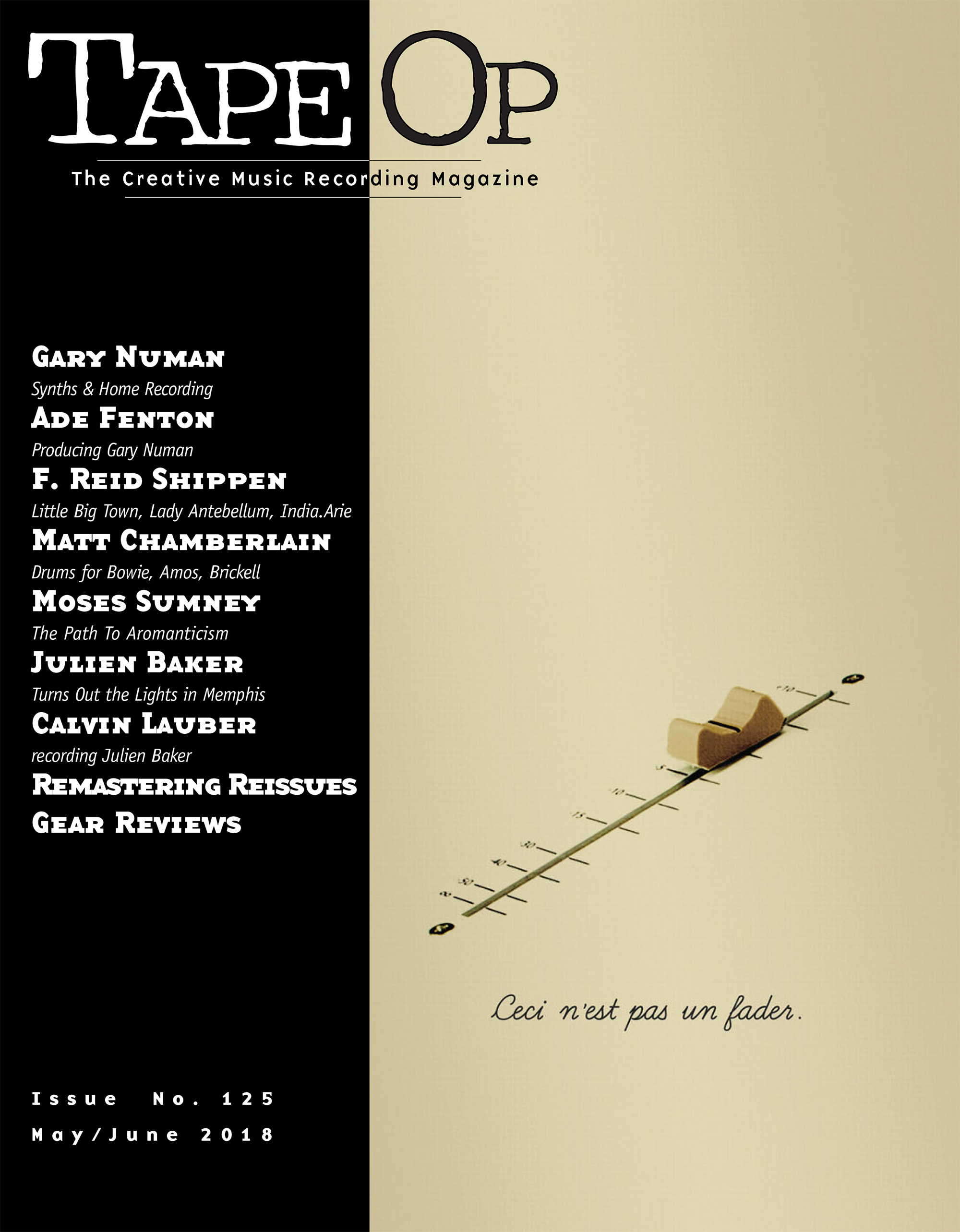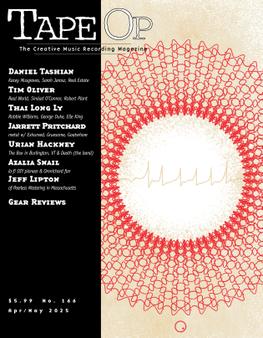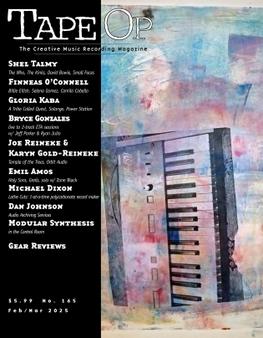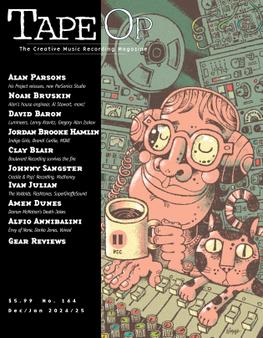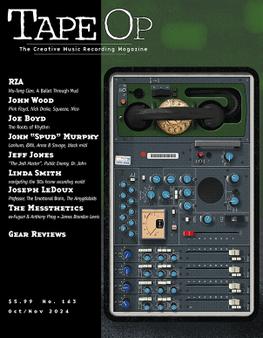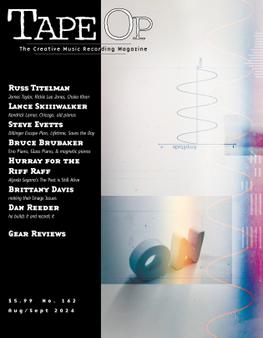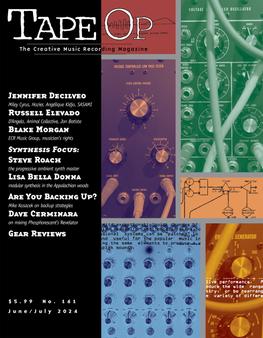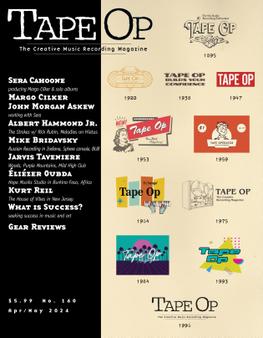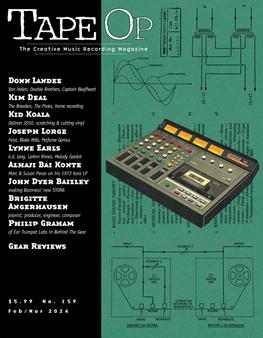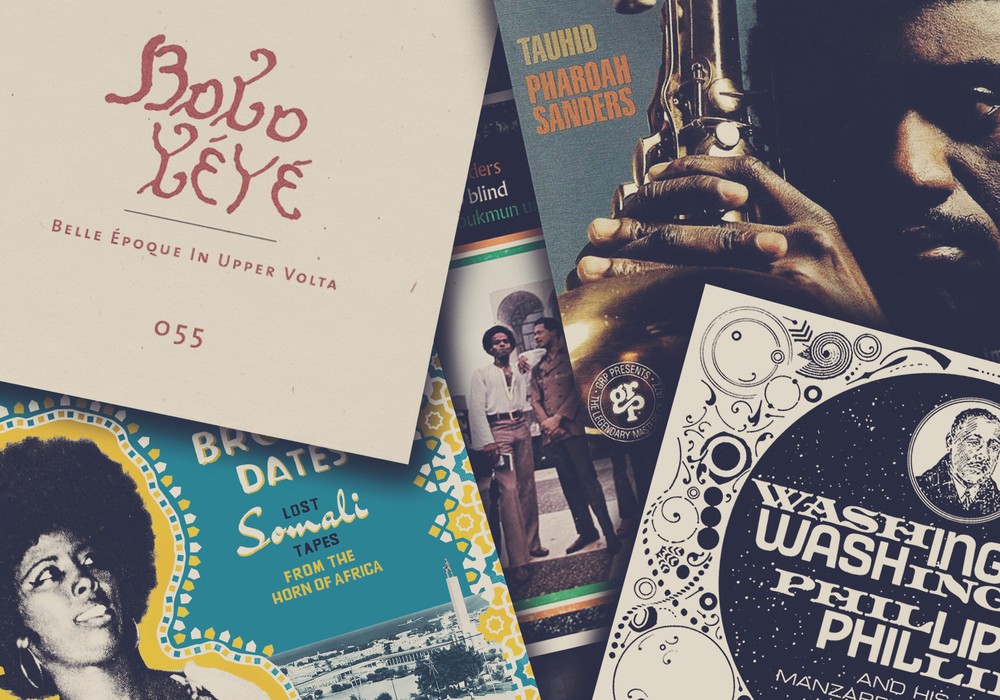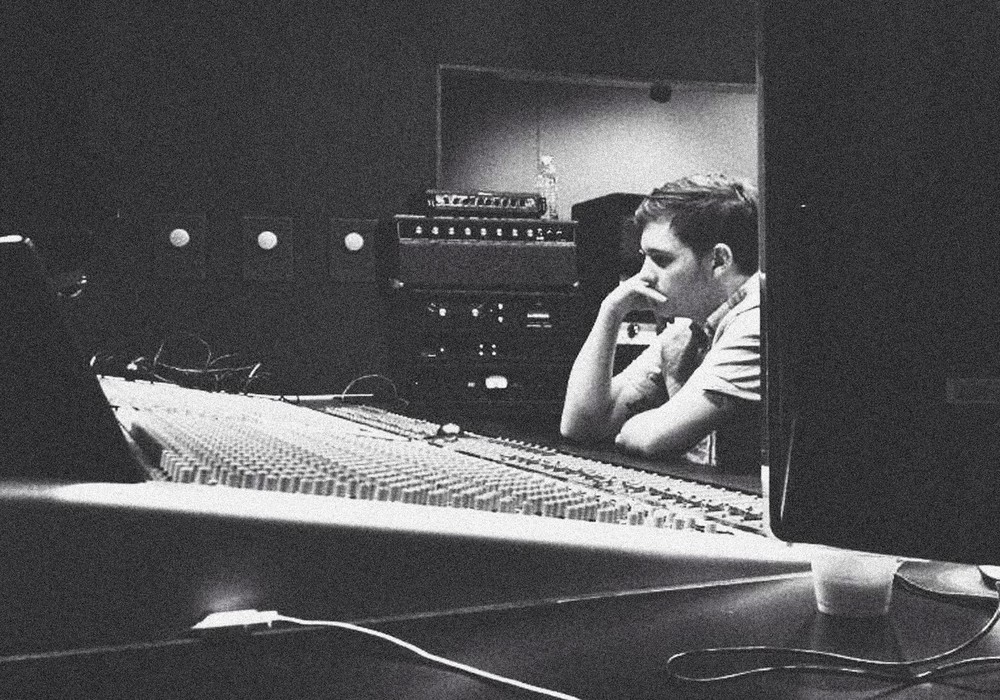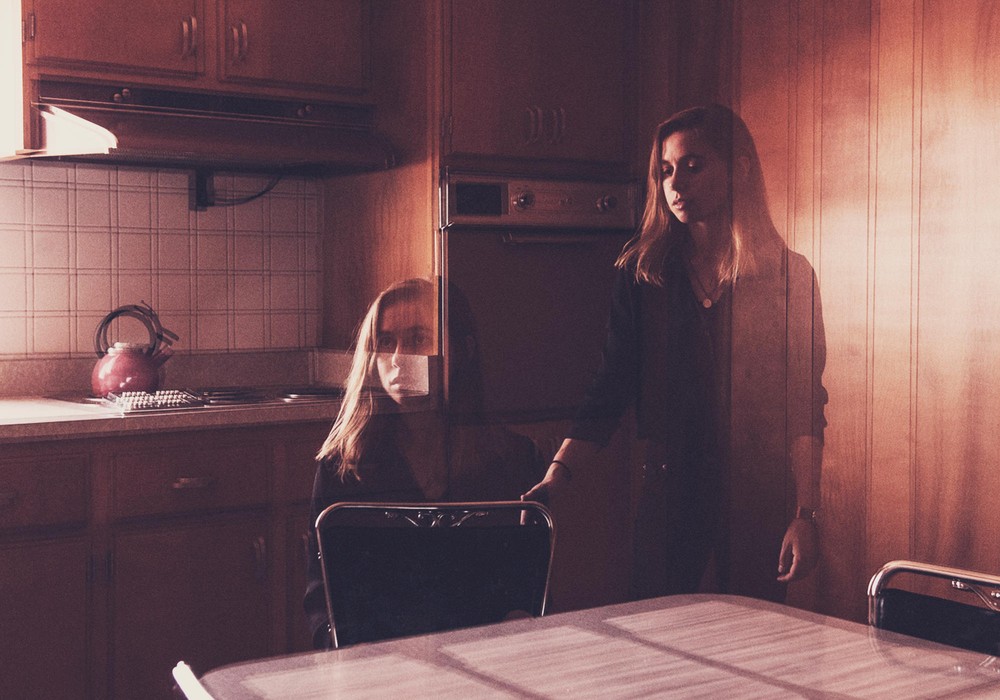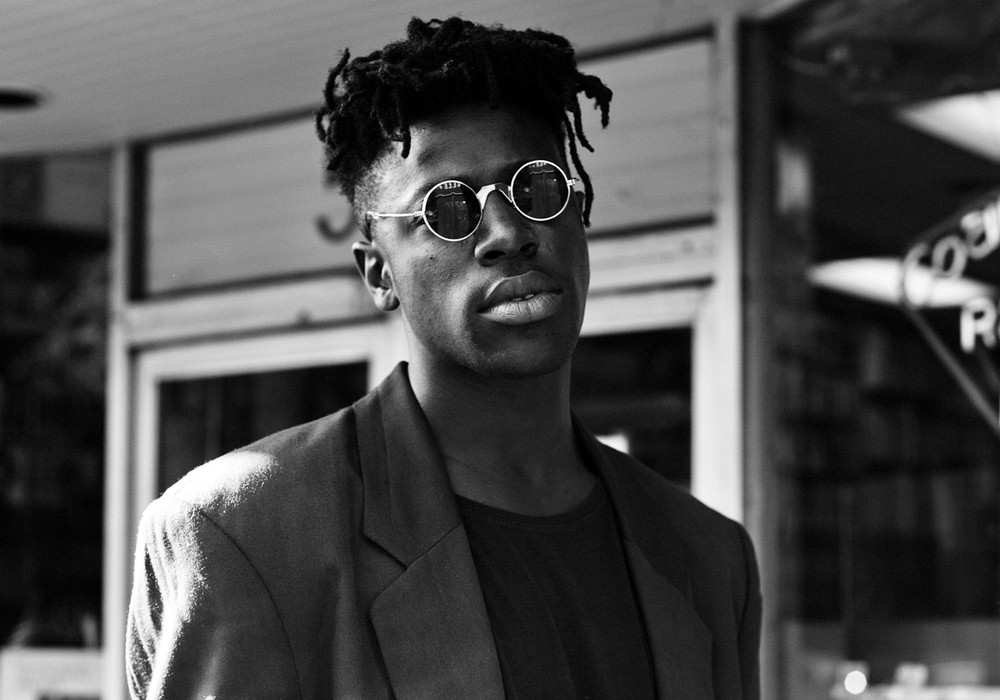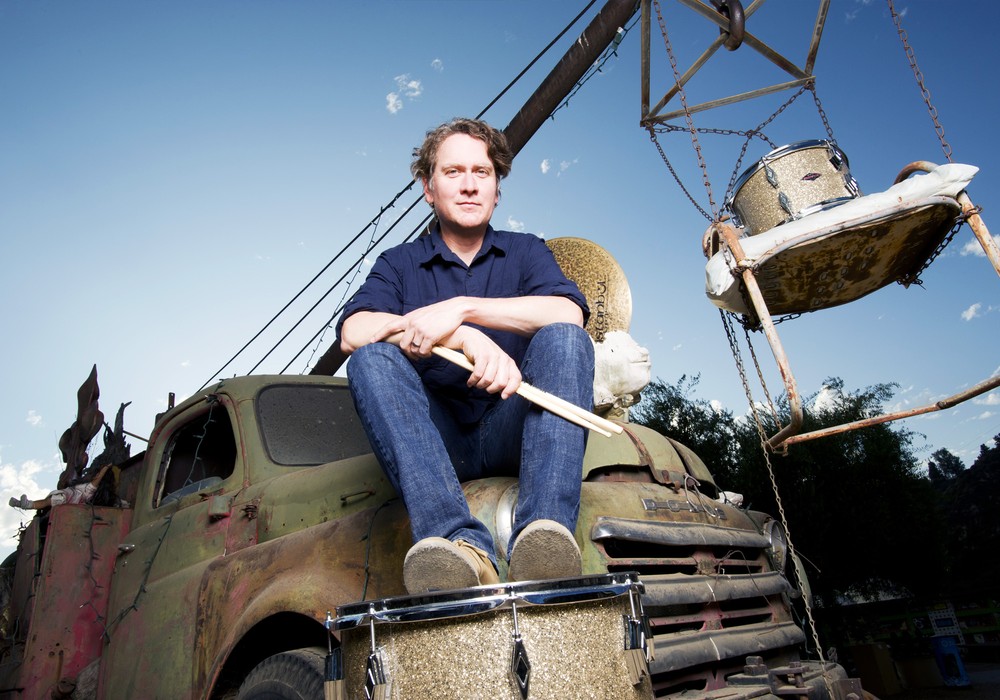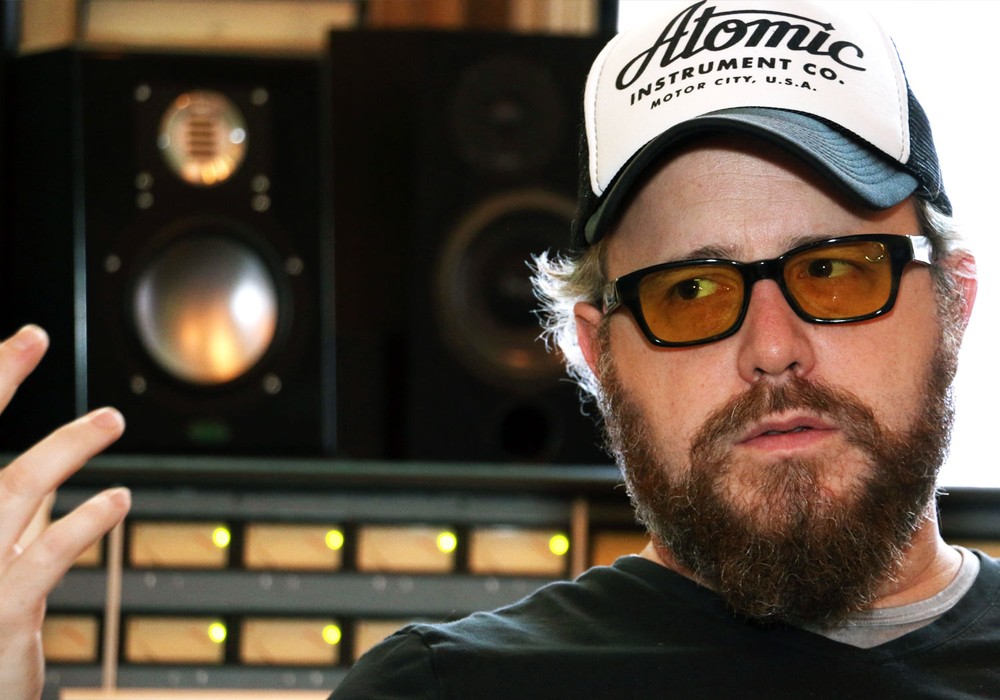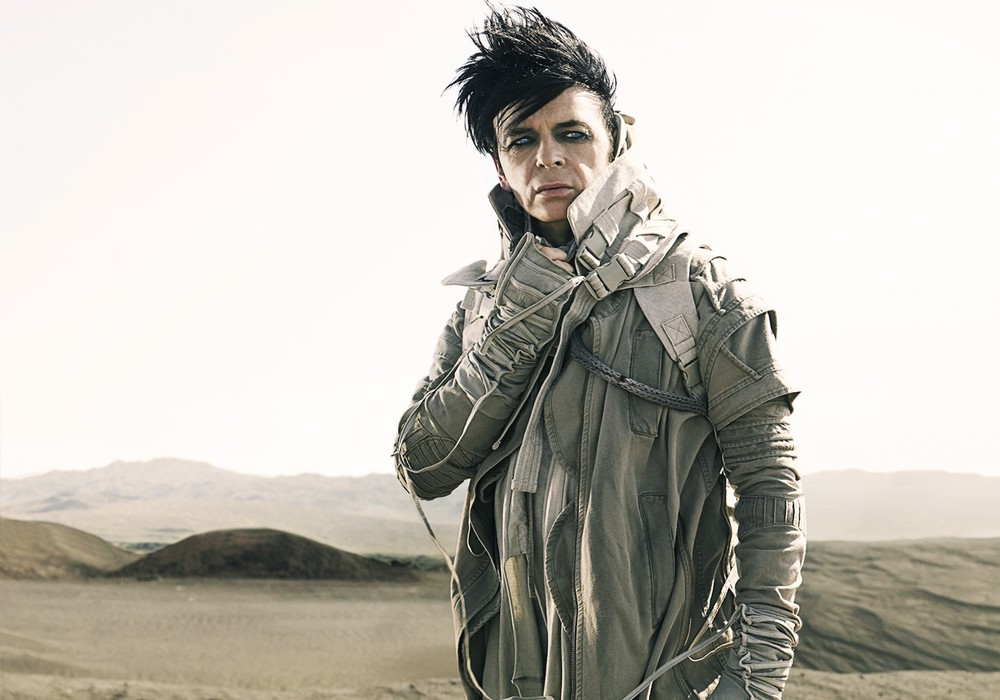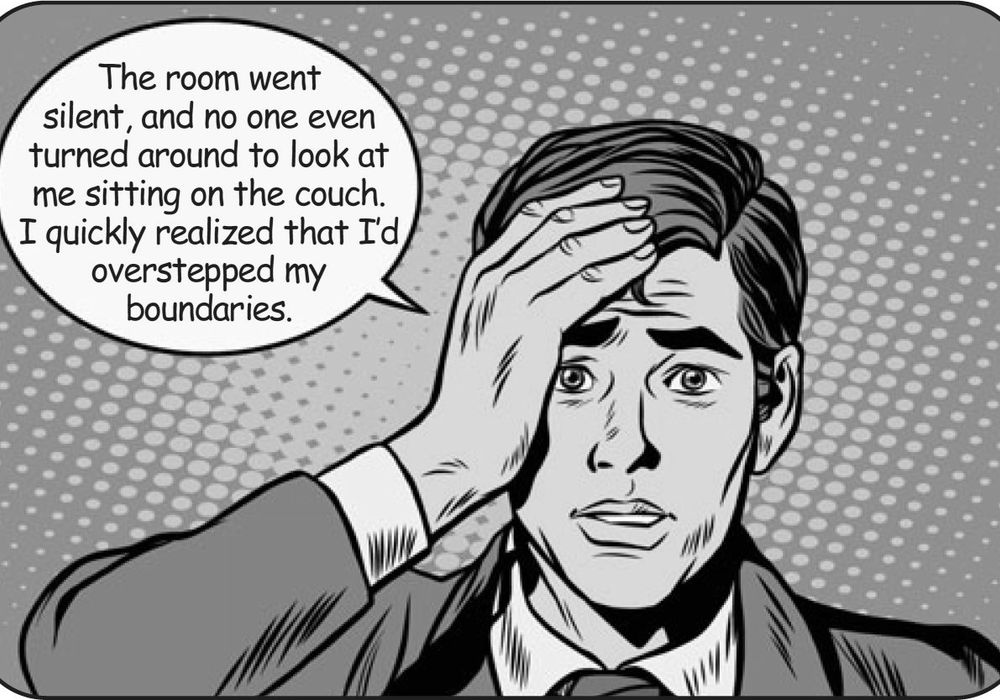May/Jun 2018
Welcome to issue #125 of Tape Op.
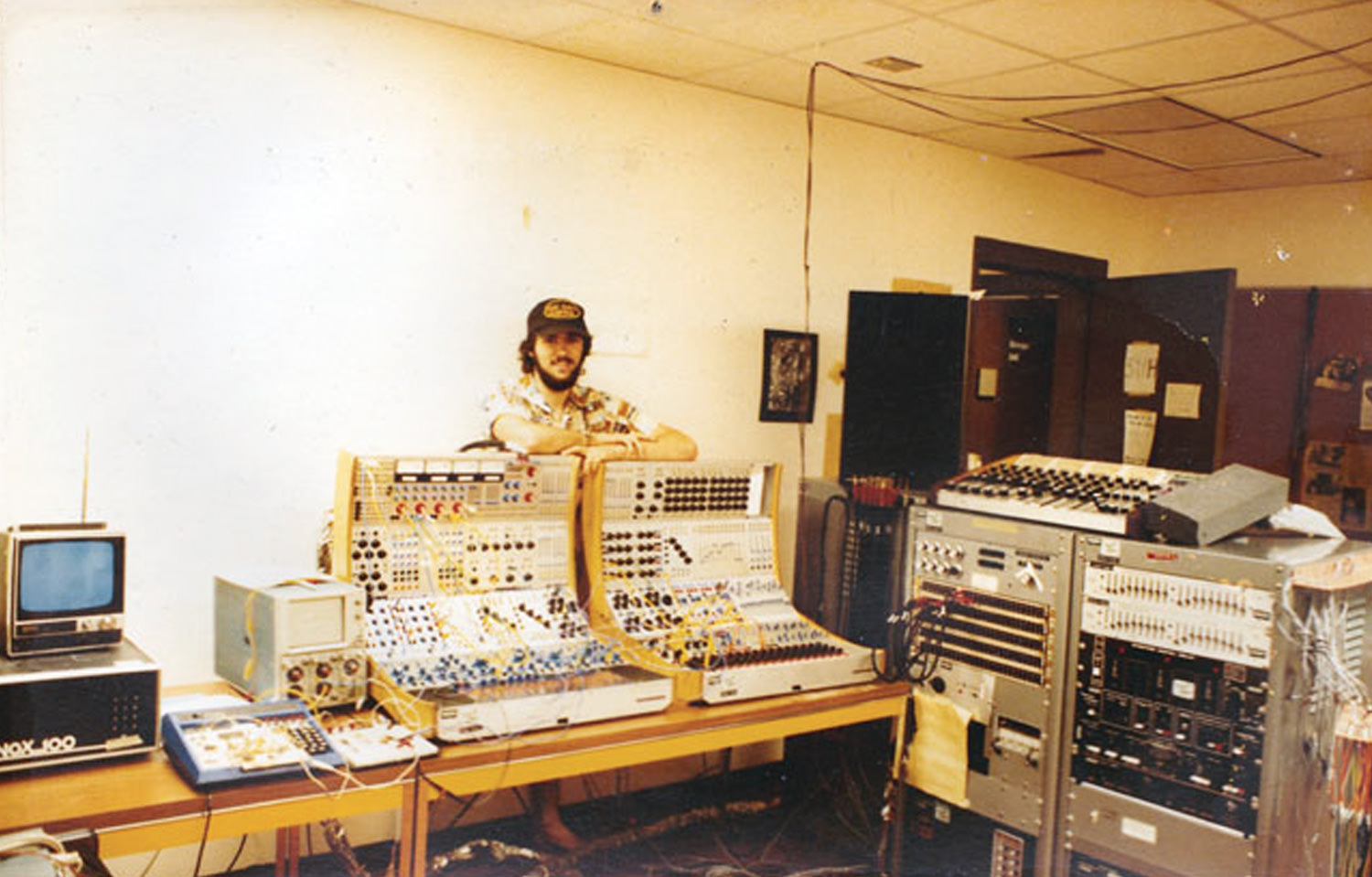
This pic is me in 1983, just before I went to CCRMA, in the Buchla Modular studio at The Evergreen State College in Olympia, WA, which was another amazing situation to throw myself into. The small blue box at bottom left is a 6800 CPU, and a prototype digital sequencer/DAC I built, that I wrote hex machine language code for to control the Buchla. Fun stuff!
-JB
I was recently in a conversation with John Baccigaluppi, my partner in Tape Op, about his college years and the brief few months he spent in the early '80s at Stanford's CCRMA (Center for Computer Research in Music and Acoustics) studying under John Chowning, the inventor of FM synthesis (the concept that led to keyboards like the Yamaha DX7). John told me, "I was in way over my head, but just being a fly on the wall was pretty awesome." This got me thinking about how we really learn the craft of recording. Most all of my experiences in music began with situations that were "over my head." Learning to be a disc jockey in high school, joining a band on an instrument I barely knew, putting out records, opening a studio, starting a magazine, and recording bands – all these began as unfamiliar territory for me that I just threw myself into. I also made sure to frequently surround myself with talented people that knew more than I did. Hanging out with musicians, producers, radio folks, teachers, gear designers, and others that had specialized skills forced me to try and assimilate larger amounts of knowledge. I had to at least understand the basics of a concept, and I eventually gained more personal resources to draw from in order to make better decisions. We all need to challenge ourselves to be the best we can be, and surrounding one's self with talented people will always provide the push that we need.


